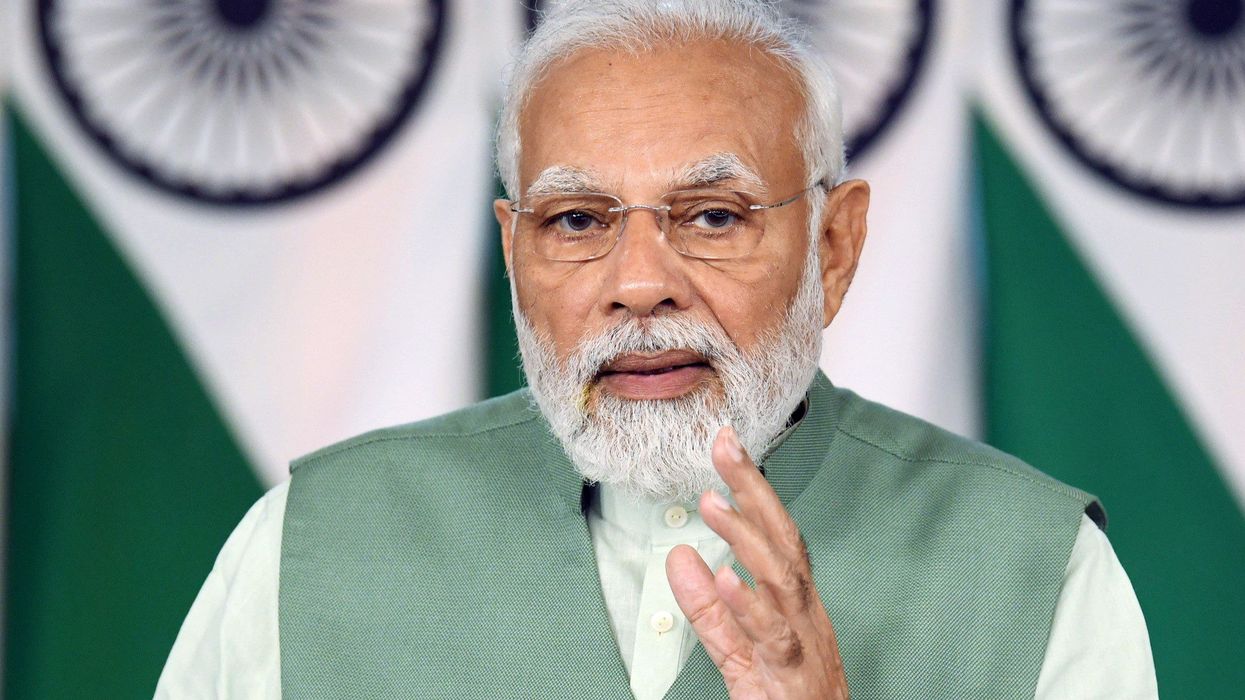Ahead of Indian Prime Minister Narendra Modi's state visit to Washington, the Biden administration is pushing New Delhi to cut through its own red tape and advance a deal for dozens of US-made armed drones, two people familiar with the matter said.
India has long expressed interest in buying large armed drones from the United States. But bureaucratic stumbling blocks have hampered a hoped-for deal for SeaGuardian drones that could be worth $2 billion to $3 billion for years.
US negotiators are counting on Modi's White House visit on June 22 to break the log jam.
Since the date for Modi's visit was fixed, the US State Department, Pentagon and White House have asked India to be able to "show" progress on the deal for as many as 30 armable MQ-9B SeaGuardian drones made by General Atomics, two sources said.
Modi and Biden are also expected to discuss co-production of munitions and ground vehicles, like armoured personnel carriers, while Modi is in Washington, the sources said.
Spokespeople for the White House, Department of State and the Pentagon declined to comment on the negotiations.
US President Joe Biden has made deepening ties with India a cornerstone of his policy to counter China's growing influence, placing special attention this year on collaboration between the world's two largest democracies on advanced military technologies, despite their lack of a formal security alliance.
New Delhi, which often prizes its non-alignment in conflicts between great powers abroad, has frustrated Washington by maintaining some defence and economic ties with Russia after Moscow’s invasion of Ukraine.
Breaking India's bureaucratic log jam on drones hinges on an internal meeting to generate an "Acceptance of Necessity" document, an Indian precursor to a formal "Letter of Request" which kicks off the foreign military sale process. As of Tuesday (13), the sources did not know if the New Delhi had generated the necessary internal document.
"That's gonna be a decision that the government of India needs to make," said a senior Biden administration official.
"We think it would be good for them to go through with the purchase of MQ-9s. But those decisions are sort of more in the hands of India than they are of us."
The topic was expected to be on the agenda as Biden's national security adviser, Jake Sullivan, arrived in New Delhi on Tuesday to finalise preparations ahead of Modi's visit.
As of last week, India's defence ministry had still not made up its mind about the number of drones it wants to buy, according to a person familiar with the discussions. Earlier, the number was pegged at 30, but that was later revised to 24, and then further down to 18 last month. Sources cautioned that none of the numbers was final.
India is also seeking components of the equipment to be domestically manufactured, something that could complicate any deal.
The Quad grouping of countries - the US, India, Australia and Japan - all operate, or have operated, the MQ-9B SeaGuardian. Currently, India is leasing MQ-9Bs as part of an intelligence-gathering operation.
(Reuters)
US pushing India to ‘seal big armed drone buy for Narendra Modi visit’
The Indian prime minister and the American president are also expected to discuss co-production of munitions and ground vehicles




